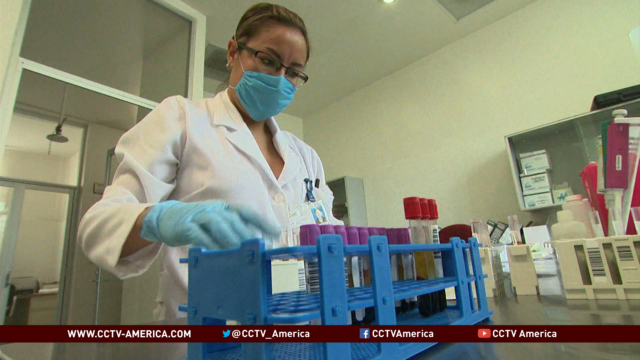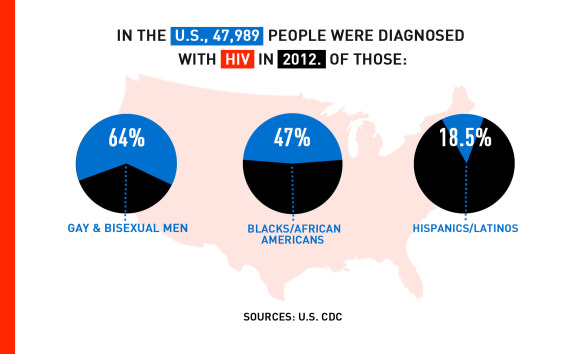The annual number of new HIV infections in the United States has dropped dramatically since the 1980s, but there are still 1.2 million Americans living with the disease. According to the U.S. Centers for Disease Control, gay and bisexual men account for the majority of new infections. The CDC also found that the African-American community is disproportionately affected. CCTV America’s Karina Huber reported this story from New York.
JUMP TO:
UN says HIV epidemic can be eradicated by 2030
Nations throughout Africa work to reduce HIV/AIDS
Michael Weinstein discusses fight against AIDS
Adonis Porch contracted HIV eight years ago in his first year of college after having sex with a man he met online, who told him he was virus free. Porch used a condom, but it broke.
“A few weeks later, I wound up giving blood at a blood drive,” Porch said, and that’s when he got the news. “I literally saw my whole world turn upside down. I got into contact with that person and told him that I found out I was HIV positive, and he hung up on me.”
Porch said the man later told him he knew he was HIV positive and had purposefully punctured the condom in a fit of rage. Porch tried to commit suicide numerous times, but said his friends and family supported him through this trying time.
“I thought my mom would tell me ‘Oh you have it. I’m done with you’. But my mom was and still is very supportive,” Porch said.
Charles King, the chief executive of Housing Works, an organization that assists homeless people living with HIV/AIDS in New York City, said African-Americans are most impacted, because they are also the least likely to have primary health care and therefore are not offered free HIV testing.
“Young, black gay and bisexual men, transgender folk are often disenfranchised from their families. There’s a lot of difficulty around social acceptance,” King said.
King supports the use of a HIV treatment and prevention drug called Truvada.
“You would take the pill every single day and within two weeks you would have enough saturation to give you 99 percent protection, actually better protection than a condom would,” said King.
Porch takes four anti-retroviral pills a day. The virus is still detectable in his system, but he said he’s healthy and has a new perspective on life.
“I’m just dealing with HIV. It could be ten times worse. I could be HIV positive and missing both my limbs. I could be blind at the same time, deaf at the same time and my intestines hanging out all in one. But I’m still able to get up each and every morning and be thankful for what I do have,” Porch said.

Michael Weinstein of AIDS Healthcare Foundation discusses fight against AIDS
CCTV America interviewed Michael Weinstein, the president of AIDS Healthcare Foundation about new ways to combat HIV/AIDS.

Mead Over of Center for Global Development discusses economic cost of AIDS
CCTV America also interviewed Mead Over, a senior fellow at the Center for Global Development, about the economic impact of AIDS.

 CGTN America
CGTN America

